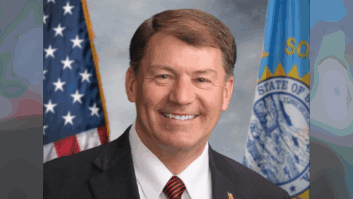After Congress approved a “clawback” of $1.1 billion in pre-allocated funds from the Corporation of Public Broadcasting, National Public Radio is taking new action to support its vulnerable member stations.
A report from Texas Public Radio says NPR will cut its budget by about $8 million to support member stations most affected by last week’s rescission of federal funding.
After details of President Trump’s recision package were unveiled at the start of June, industry observers have expressed concern about how these cuts will affect rural, indigenous and community radio stations that heavily rely on federal funds.
NPR President/CEO Katherine Maher told Texas Public Radio that the NPR board of directors decided to reduce its own operating budget to use as a “fee relief” for these affected stations.
“It’s the short-term step for how we respond right now,” Maher said in her interview. “We’re going to use the rest of the year to plan for how we bridge what’s to come in order to support and sustain the network for the future.”
The rescission, passed by Congress as part of a broader $9 billion clawback effort, will cost public radio stations an estimated $350 million annually over the next two years.
According to a report released by Sen. Maria Cantwell’s office earlier this month, there are 79 public radio and 33 TV stations in 34 states and territories that are “vulnerable” to closing down with the loss of federal funding.
“Support through the Corporation for Public Broadcasting is critical for many local stations, with the most vulnerable in rural and remote communities,” the report states. “These stations rely heavily on federal funding, with some depending on it for over 70 percent of their budgets. Some rural areas depend on their local public media station as their only source of information in emergencies.”
Rima Dael, CEO of the National Federation of Community Broadcasters, echoed the report findings, saying “defunding public media doesn’t punish NPR — it guts the emergency lifelines that small towns and Tribal communities depend on.”
“The recent debate about NPR’s editorial choices should not be used to justify dismantling this critical civic infrastructure,” Dael wrote in a commentary published by Radio World.
When Texas Public Radio asked Maher about philanthropic opportunities to support public radio’s mission, Maher said the conversation should now shift to individual contributions and private donations.
“This is a way of us being able to restart that conversation with philanthropy at the national level, at the regional level, at the local level, if you care about something in your community, media, radio, local reporting. … [It’s] a way to make sure that stays at the top of the agenda for that community,” Maher said.
Read the full story from Texas Public Radio here.
In other NPR news this week, Edith Chapin, the top editor and acting chief content officer at NPR, will leave her post at the end of the year. The move marks another major change ahead of the public broadcaster’s next chapter. Chapin joined NPR from CNN in 2012 as chief international editor.
[Related: “Trusty: ‘This Is Not the End of Public Media’“]






